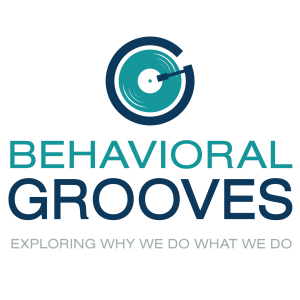
- Podcast Features
-
Monetization
-
Ads Marketplace
Join Ads Marketplace to earn through podcast sponsorships.
-
PodAds
Manage your ads with dynamic ad insertion capability.
-
Apple Podcasts Subscriptions Integration
Monetize with Apple Podcasts Subscriptions via Podbean.
-
Live Streaming
Earn rewards and recurring income from Fan Club membership.
-
Ads Marketplace
- Podbean App
-
Help and Support
-
Help Center
Get the answers and support you need.
-
Podbean Academy
Resources and guides to launch, grow, and monetize podcast.
-
Podbean Blog
Stay updated with the latest podcasting tips and trends.
-
What’s New
Check out our newest and recently released features!
-
Podcasting Smarter
Podcast interviews, best practices, and helpful tips.
-
Help Center
-
Popular Topics
-
How to Start a Podcast
The step-by-step guide to start your own podcast.
-
How to Start a Live Podcast
Create the best live podcast and engage your audience.
-
How to Monetize a Podcast
Tips on making the decision to monetize your podcast.
-
How to Promote Your Podcast
The best ways to get more eyes and ears on your podcast.
-
Podcast Advertising 101
Everything you need to know about podcast advertising.
-
Mobile Podcast Recording Guide
The ultimate guide to recording a podcast on your phone.
-
How to Use Group Recording
Steps to set up and use group recording in the Podbean app.
-
How to Start a Podcast
-
Podcasting
- Podcast Features
-
Monetization
-
Ads Marketplace
Join Ads Marketplace to earn through podcast sponsorships.
-
PodAds
Manage your ads with dynamic ad insertion capability.
-
Apple Podcasts Subscriptions Integration
Monetize with Apple Podcasts Subscriptions via Podbean.
-
Live Streaming
Earn rewards and recurring income from Fan Club membership.
-
Ads Marketplace
- Podbean App
- Advertisers
- Enterprise
- Pricing
-
Resources
-
Help and Support
-
Help Center
Get the answers and support you need.
-
Podbean Academy
Resources and guides to launch, grow, and monetize podcast.
-
Podbean Blog
Stay updated with the latest podcasting tips and trends.
-
What’s New
Check out our newest and recently released features!
-
Podcasting Smarter
Podcast interviews, best practices, and helpful tips.
-
Help Center
-
Popular Topics
-
How to Start a Podcast
The step-by-step guide to start your own podcast.
-
How to Start a Live Podcast
Create the best live podcast and engage your audience.
-
How to Monetize a Podcast
Tips on making the decision to monetize your podcast.
-
How to Promote Your Podcast
The best ways to get more eyes and ears on your podcast.
-
Podcast Advertising 101
Everything you need to know about podcast advertising.
-
Mobile Podcast Recording Guide
The ultimate guide to recording a podcast on your phone.
-
How to Use Group Recording
Steps to set up and use group recording in the Podbean app.
-
How to Start a Podcast
-
Help and Support
- Discover

Robert Cialdini, PhD is counted among the greatest psychological researchers alive today and his published works have been cited thousands of times. His New York Times best-selling book, Influence, from 1984, is considered a classic for classroom and corporate use alike. He is an ardent author and a passionate professor, and his work has impacted millions. In short, Bob Cialdini has shaped the landscape of how sales and marketing workers do their jobs and how researchers frame their studies.
In this episode of Behavioral Grooves, Bob took a few minutes to discuss some of his most underappreciated research and some of the new things he’s working on. We began with a study that used littering as a way to predict, before the polls closed, the outcome of an election by watching how voters treated candidate fliers left on their cars. One of the very elegant aspects of this study was that it required no surveys – merely the observation of behaviors in the parking lots of the polling places. The question the researchers sought to answer was this: How do voters treat the fliers of candidates they favor and of those they oppose? More specifically, do voters keep fliers from candidates they like and litter with the fliers of candidates they dislike?
Then, our conversation moved to a line of research that he’d investigated for over a decade: the motivations for pro-social behavior, such as giving to those in need. Bob reminds us that there are many motivators at play when one person helps out another, as when a passerby gives money to some asking for money on the street, but there is one motivator that stands out: egoism. Many of us believe that being charitable is an obligation or is driven by guilt, and while that is true to some degree, Bob’s collective research over more than a dozen years revealed that egoism, that selfish desire to feel good about ourselves, is at the heart of helping others.
Then we went a step farther. Bob noted that helping others is more likely to occur when the person in need appears to be in-group or in-tribe. In other words, we’re more likely to be charitable if it appears the person asking for help is “like me.” The primary way we decide if someone is like us is to look at how they’re dressed. What kind of clothes are they wearing? In his studies, Bob found that soccer (football) fans were more likely to assist someone on the street if they were wearing the jersey of their favorite team. It’s unnerving to think that the clothes you wear could determine whether someone helps you or not.
In our grooving session, Kurt and Tim discussed the impact of social identity and self-identity. We discussed articles by Michael Hogg and Roy Baumeister. We brought in books by Harvard Professor Teresa Amabile and Dan Levitan’s great treatise on the neurological effects of music. And on music, we chatted about how music makes us feel and we cited Semisonic’s “Closing Time” and Beethoven’s 5th Symphony as examples.
Lastly, Bob is interested in hearing from YOU! He’d like listeners to send reports on how the principles of influence are being used in the real world to be included in his next book. If you’d like to be considered for his next work, please send your stories to info@influenceatwork.com
We hope you enjoy our discussion with Bob Cialdini. https://behavioralgrooves.podbean.com/
Sponsor: The Creative Group, Inc.This episode is brought to you by Creative Group Inc. Kurt and Tim have worked with CGI and have found that their process of co-creation of incentive program provides clients with more robust solutions. Because their incentive and employee engagement programs are co-created, they reflect the truest aspects of the client’s organization and culture. CGI shares our belief that incentives and rewards shouldn’t be used to create brand mercenaries – but instead, should be about creating brand missionaries. Check them out at https://www.creativegroupinc.com/.
A Note of GratitudeWe are grateful to Bob for sharing his insights with us in this very fun conversation. However, it wouldn’t have happened without the concerted effort of Bobette Gordon. We thank her for her coordination and support to make put make our conversation with Bob a reality.
ReferencesRobert Cialdini, PhD and Influence at Work: https://www.influenceatwork.com/
The Principle of Continuation in Gestalt Psychology. The Continuity Principle: http://www.scholarpedia.org/article/Gestalt_principles#Continuity_principle
Daniel Levitin: This is Your Brain on Music. https://en.wikipedia.org/wiki/This_Is_Your_Brain_on_Music
Baumeister, R. F., & Leary, M. R. (1995). “The need to belong: Desire for interpersonal attachments as a fundamental human motivation,” Psychological Bulletin, 117, 497–529.
Festinger, L. (1954). “A theory of social comparison processes,” Human Relations, 7, 117–140.
Hogg, M. A. (2001). “Social categorization, depersonalization, and group behavior. In M. A. Hogg & R. S. Tindale (Eds.), Blackwell handbook of social psychology: Group processes (pp. 56–85). Malden, MA: Blackwell.
Walton, G., Cohen, G., Cwir, D., and Spencer, S. (2012) “Mere Belonging: The Power of Social Connections,” Journal of Personality and Social Psychology,, Vol. 102, No. 3, 513–532.
Amabile, T., Kramer, S., Williams, S. (2011) The Progress Principle, Harvard Business Review Press.
Aretha Franklin: “Think” https://www.youtube.com/watch?v=hsL9UL9qbv8
Semisonic: “Closing Time” https://www.youtube.com/watch?v=xGytDsqkQY
Ludwig von Beethoven: “5th Symphony” https://www.youtube.com/watch?v=MxF7hDsU-HY
Cassette tape: https://en.wikipedia.org/wiki/Cassette_tape
More Episodes
 2025-08-04
2025-08-04
 2025-07-24
2025-07-24
 2025-06-26
2025-06-26
Create your
podcast in
minutes
- Full-featured podcast site
- Unlimited storage and bandwidth
- Comprehensive podcast stats
- Distribute to Apple Podcasts, Spotify, and more
- Make money with your podcast
It is Free
- Privacy Policy
- Cookie Policy
- Terms of Use
- Consent Preferences
- Copyright © 2015-2025 Podbean.com




